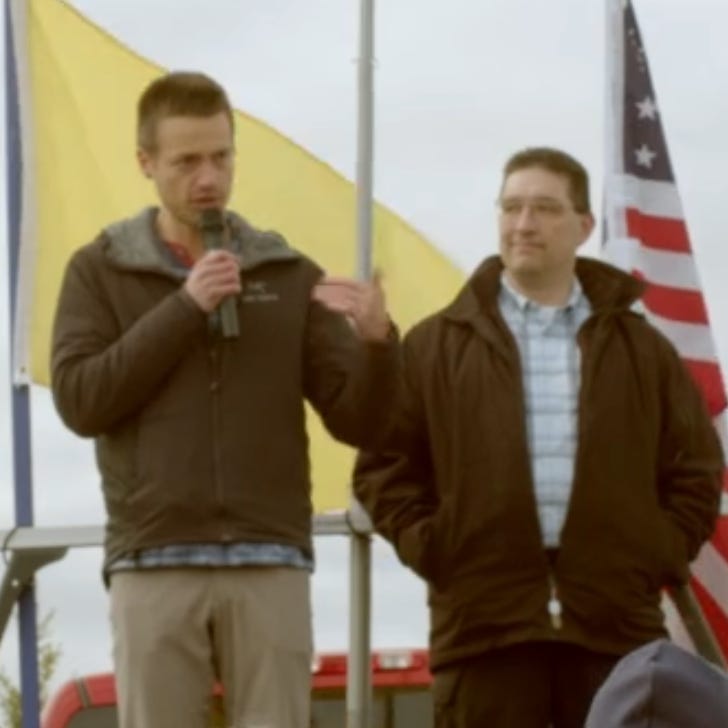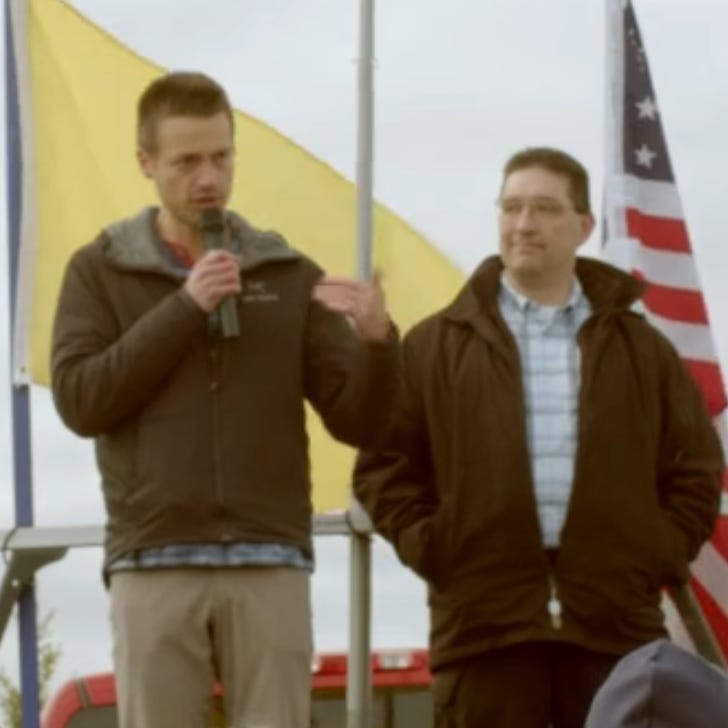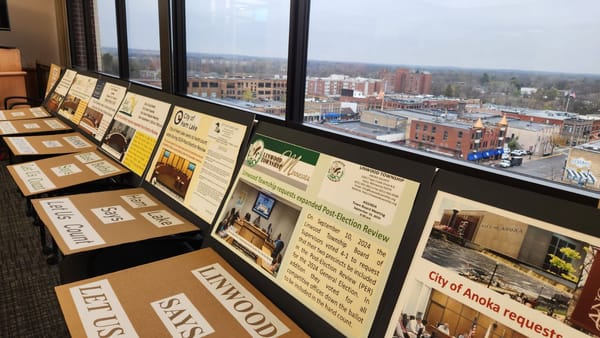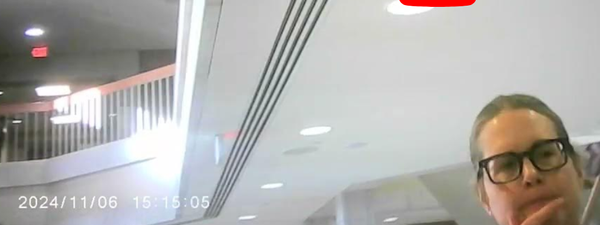Stearns County Has Disposed Ballots from the 2020 Election
But will that really prevent the truth from eventually being known?
Last summer, when I met in person alongside two Stearns residents with the Stearns County Auditor-Treasurer (24 years in this role) and the newly placed Division Director of Elections, both election officials seemed to have an incomplete understanding of the significance of a cast vote record, which is an automatic internal audit feature in all tabulators certified for use in Minnesota. However only about 24 hours later it was communicated that the citizens of Stearns asking for this would not get this public election data. In September 2022, after Minnesota’s Secretary of State (and many election officials) implied these didn’t exist, Fillmore County produced the first analyzable CVR in Minnesota.
More than 1,000 cast vote record reports from elections in 2020, 2021, and 2022 have been collected by ordros.com, demonstrating there is no legal issue with handing over this election data to the public. Government work product is public. Counties like Dodge County, Wisconsin, even provide public links to downloadable zip files of both CVRs and ballot images on the Dodge County website, which saves staff and citizens time having to send and reply to requests.
It was recently shared with a Stearns County citizen that the ballots for the 2020 general election were disposed of. Per federal and Minnesota statute, all election data, physical and digital, must be kept for a minimum of 22 months for most elections. Stearns County has therefore done nothing illegal in their disposal of the physical ballots (and absentee/mail-in signature envelopes) from 2020. However doing away with the ballots hardly helps to make the case toward transparency with the public before a comprehensive audit could take place (note that Post-Election Reviews in Minnesota only audit less than 1% of all ovals statewide on a tiny fraction of the total physical ballots, and do not investigate signature envelopes nor the cast vote records). Residents in Stearns attended commissioner meetings for months asking for audits and eventually relatively easier requests like the cast vote records.
They were asking for transparency.
Even in the Senate committee hearing yesterday about ranked choice voting, the man sitting next to me—wearing an orange t-shirt expressing his positive outlook on ranked choice voting (also known as instant runoff voting)—agreed that more transparency would be good. (This after being surprised that I was an “opponent” of SF2270—for a moment there I wasn’t sure if he would allow me to retake my seat after testifying.) Despite the reversal of first impressions, it’s even possible our conversation got back on the rails enough that in the hallway after the meeting he did not join the SF2270-proponent crowd gathering for their victory photo. A victory in my book.
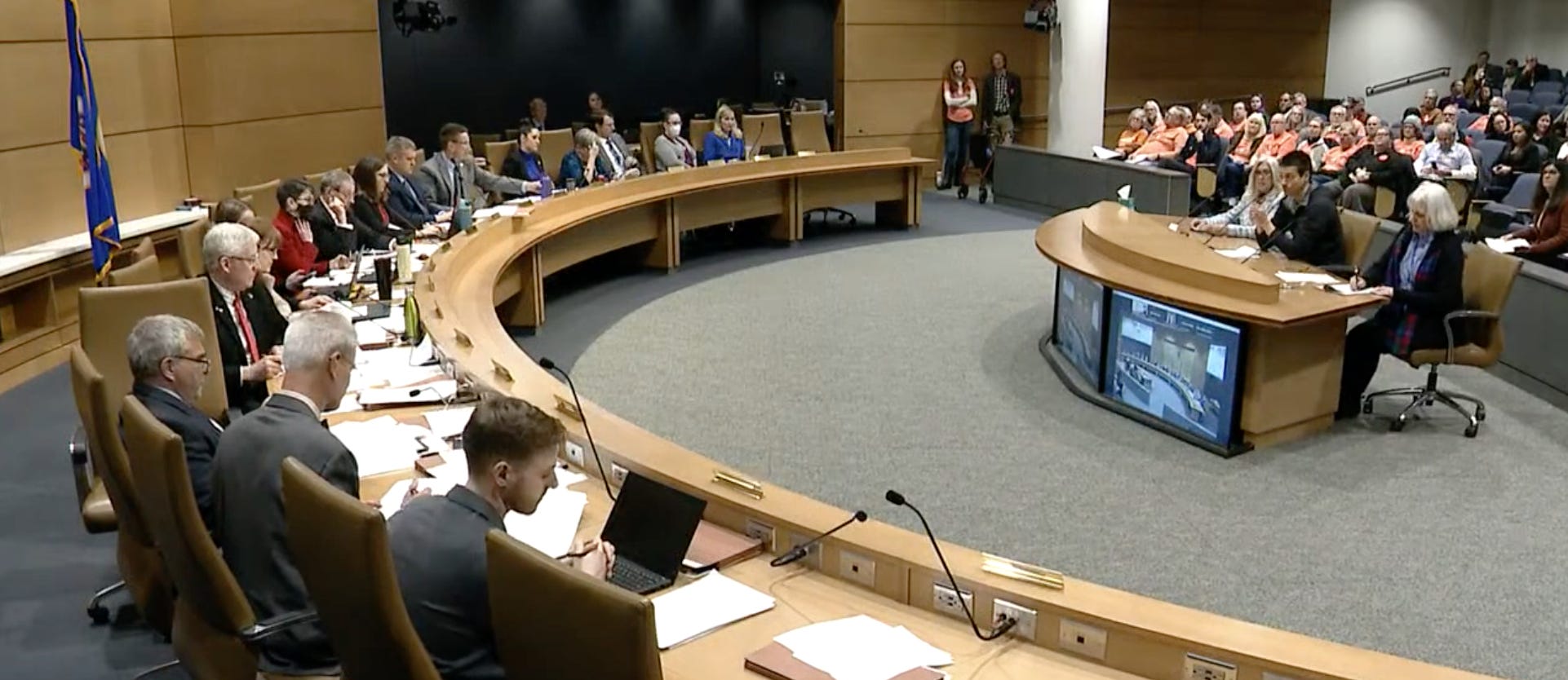
Not all records from the 2020 election have been done away with, discarded, or destroyed. For instance, Tina Peters, the Mesa County, Colorado election clerk who was the subject of [S]election Code, preserved some of her digital records when she made a backup of her election computers prior to a Dominion employee’s “Trusted Build”, a software update which was shown to have deleted log files from the 2020 election—the Mesa Report #3 co-authored by Jeffrey O’Donnell and Dr. Walter Daugherity details proven database manipulation as well. I remember well when Mr. O’Donnell and one other man first shared their preliminary findings on a video call I happened to be on in October 2021. I didn’t know how pivotal O’Donnell would come to be in the current investigations nationwide (and internationally).
Not all election records been destroyed locally here in Minnesota. Even after the Crow Wing County Board of Commissioners voted in favor of a forensic audit (after great encouragement from residents), the Minnesota Secretary of State, Steve Simon, declined to audit Crow Wing County. Are counties holding onto their ballots should a future audit be called for? Perhaps they held onto them because so many citizens were asking about them? Or maybe they are avoiding the potential destruction of evidence given ongoing litigation?
Asking whether the 2020 records, physical ballots, absentee envelopes, and digital cast vote records, are still in the possession of your county is one simple question to map out the level of transparency the county is maintaining with the public. The same can be asked for the 2022 midterms and any other local elections in your area.
While it is true that the counties may legally dispose of these records, would it be so bad to hold onto them just a little bit longer? In the meantime, maybe they can see about sharing the cast vote records (video) with the public too.
If you have asked for cast vote records for 2020 or 2022 from your County Administrator, who is the Responsible Authority, please let me know: erikvanmechelen@protonmail.com

